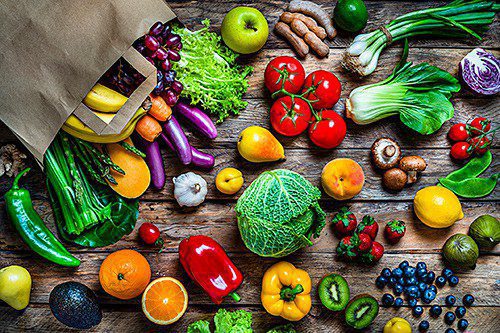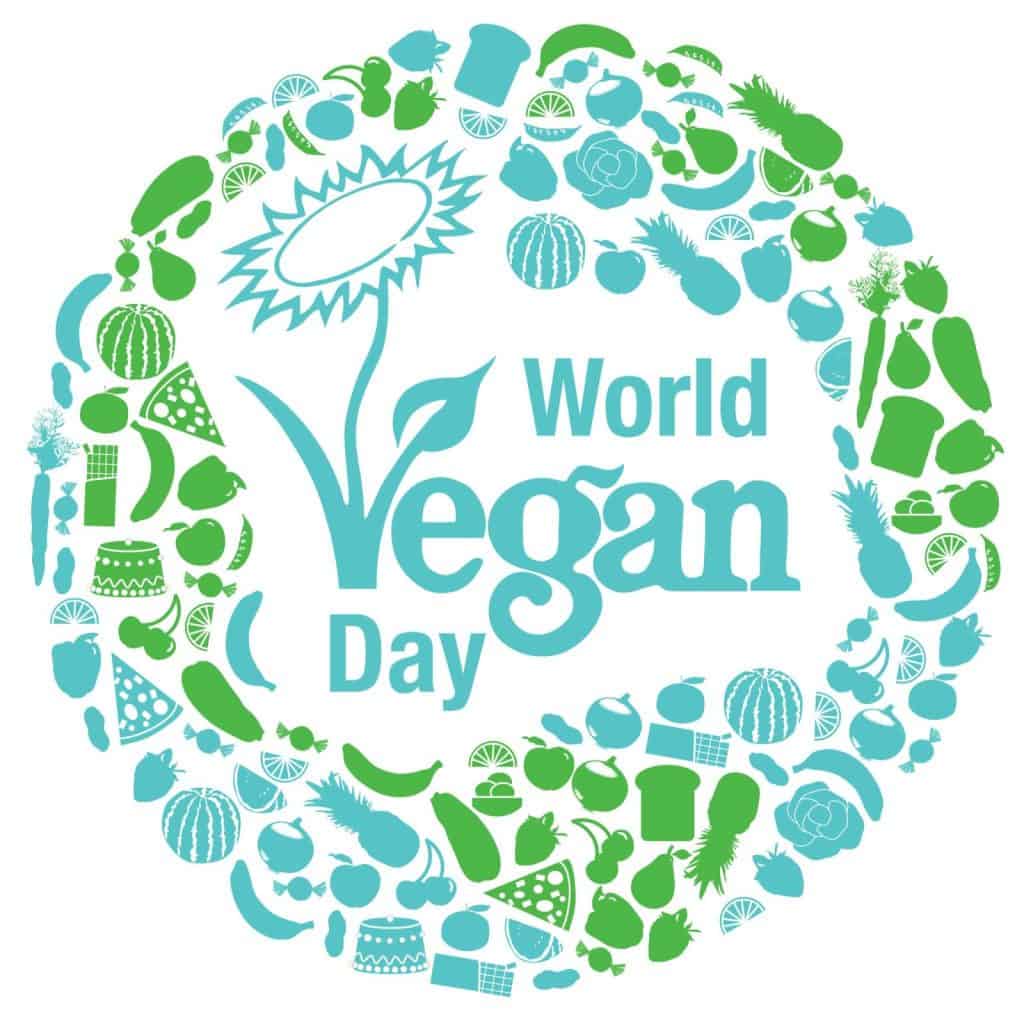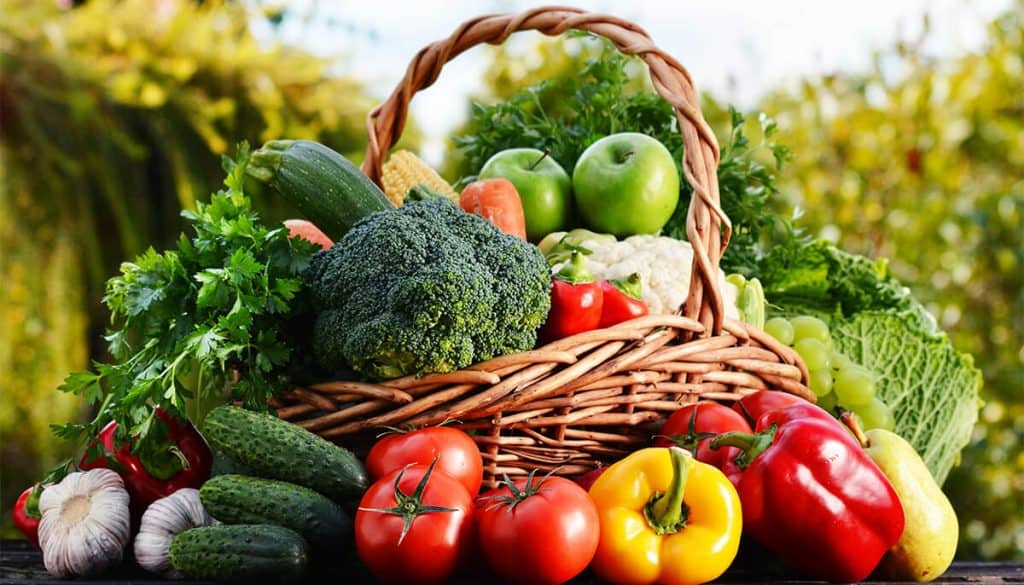
World Vegan Day 2022
It is the beginning of a new month in the 2022 calendar. On the 1st day of November 2022, we celebrate World Vegan Day. It is a day dedicated to the practice of abstaining from use of animal products and animal exploitation, and to extend our love and care to other species on earth and the natural environment.
What is World Vegan Day?
World Vegan Day is an event celebrated by vegans worldwide annually every 1st November. It is celebrated in continuity with Vegetarian Awareness Month (October 1st to 31st, which includes other commemorative dates involving topics such as food security, animal advocacy, faith-based vegetarianism and reverence for life in all species. (Wikipedia)
World Vegan Day follows the Vegetarian Awareness Month and consequently initiates World Vegan Month followed by Dynamic Harmlessness Day on November 2nd, which is the birthday of the founder of the American Vegan Society, H. Jay Dinshah.
Apart from the day being a day to celebrate, it is also a wholesome opportunity to learn something about Vegetarianism/Veganism and its benefits to the environment. It is amazing how Veganism can do wonders for our beautiful planet and conservation of its environment.
One method of reducing environmental impact that has always been overlooked and notably difficult for many, is a complete diet change. Going vegan is not only healthier for humans, but it can have a surprisingly huge positive impact on the environment.

Importance of World Vegan Day
The United Nations identified the most urgent problem, and a catastrophe of our own making, to be animal agriculture and meat production around the world and United Nations Environment Programme went ahead and recognized a select few of Vegan Companies as “Champions of The Earth”, as they promote more environmentally friendly options that are important to fully substitute the demand for meat in the future. The UN also identifies plant-based diets as a major opportunity for mitigating and adapting to climate change.
Meat production which involves breeding, raising and slaughtering billions of animals for food every year requires a massive use of natural resources which in the long run takes a huge toll on our planet. This results in an aftermath of massive amounts of waste and pollution. Our appetite for food and the system feeding it are growing more unsustainable by the day.
This is where Veganism and the switch to plant-based feeding comes in. The power to make a difference might feel as if it is out of our hands, but fear not, there is so much power right on our plates! To commemorate World Vegan Day 2022, we will talk about how Veganism helps the environment.
Whether you are an animal lover or not, we all require a healthy environment for our survival. You too can do your part, easily, one bite at a time.
How does Veganism Help the Environment?
You have already heard about the countless benefits going Vegan has for your health and now you must be wondering how being a Vegan is going to help the environment, or why you should even consider going Vegan. Well, Eco Green Initiative has compiled a short list of scientifically proven Environmental Benefits of Veganism, in commemoration of World Vegan Day 2022.

13 Benefits of Veganism to The Environment.
Veganism Saves Water Worldwide
Water is life. From taking shorter showers to water recycling, the whole world has united in practicing water conservation practices and the search for the most effective way to mitigate the increasing droughts.
Consuming an exclusive plant-based diet is considered a very effective way of saving water since plat foods use up far less water for production in comparison to animal-based products.
Research shows that one quarter of the world’s freshwater is used in meat and dairy production. Irrigation water is used 43 times more for grain-based animal feeds than pasture-based animal feeds. Considering this data, it is clear that a reduction in consumption of meat would substantially reduce the impact on water caused by our diet.
Prevents Extinction of Species
It is well established that animal agriculture uses up a large percentage of natural resources. One of these natural resources is land, which the increased use of it has threatened the survival of a larger number of native species, on a global level.
Land is extensively used for the cultivation of primary livestock feeds such as maize, and the need for more land space grows everyday so more and more land is being cleared and used for this.
Going Vegan helps prevent extinction by ensuring elimination of livestock dependency and consequently the need of factory farms feed crops while providing a sustainable agricultural model which is focused on feeding humans, instead of feeding animals for slaughter.
Combats World Hunger
The production of livestock feed affects food availability to great extents. It takes a huge share of the world’s resources to fuel Animal Agriculture and its production. Estimations state that only 12% of feed calories from crops contribute to the human diet while a whole 36% are used for animal feed.
Going Vegan cuts out this huge difference and prioritizes human consumption by using resources to promote crops that feed humans. By growing food that is for human consumption exclusively, this will increase the available food calories by 70%, making it possible to feed an additional 4 billion people worldwide.
Keeps the Soil Clean
Animal Agriculture is one of the main causes of deforestation. It weakens and depletes fertile soil distribution on Earth.
On the other hand, planting and cultivating plants and trees can help mitigate and reverse nutrient depletion in the soil, resulting in more nourished and cleaner soil which can be used for far more sustainable agriculture.
Veganism reduces Greenhouse Gas Emissions
Greenhouse gasses emit radiant energy into the atmosphere, which is a large contributor to global warming and climate change.
They include Carbon Dioxide and methane, which are in high levels majorly contributed by emissions from animal agriculture.
A vegetarian diet reduces greenhouse gasses by a substantial amount since there will be less need to practice animal agriculture therefore less emissions from the practice.
Stabilizes the Ocean
Population of the ocean’s biodiversity has been imbalanced due to overfishing. This has also affected and changed characteristics of the few remaining fish, an effect that alters and risks the ocean food chain.
Going Vegan reduces the demand for fish and other sea foods and balances the ocean’s ecosystem, restoring it to what nature intended in the first place. This also replenishes the sea by allowing marine life to thrive without interference and repopulate our oceans and seas.
Cleans Waterways
Waterways are now highly intoxicated with chemicals from the pollution caused by livestock feeding.
Apart from industrial and municipal waste, animal agriculture is the leading cause of water pollution, and this continues to grow as demand for animal products increases.
A Vegan diet will not eliminate this problem entirely, if we are being honest, because fertilizers are also a big factor in this form of pollution, but it will help eliminate the amounts of animal wastes, hormones and antibiotics that are currently polluting our waterways
Preserves Natural Habitats, Forests and Lands
The animal agriculture industry is responsible for destroying the native habitats of wild species through livestock management and feedstock. The industry also promotes deforestation in order to sustain their needs.
In the future, it is estimated that countries will need a significant increase in land to support meat production, which means destruction of native habitats belonging to species population these areas and further deforestation.
Adopting a vegan diet decreases the demand for meat and ensures the lack of need to extend land for animal agriculture.
Preserves Species
In attempts to protect livestock for predatory species, wild animals have had to be killed and this threatens endangered species.
Mitigating Climate Change
Greenhouse gasses affect climate substantially. Having animal agriculture as one of the leading sources of these emissions, Veganism will reduce the demand for animal produce and consequently the rates of emission.
Reduces Energy Consumption
Livestock farming utilizes fossil energy for various activities compared to plants.
Plant-based proteins have a higher energy efficiency as it uses 8 times less fossil-fuel energy in its production than animal-based protein.
Reduces Air Pollution
Greenhouse gas emissions include Carbon Dioxide, a very harmful gas to the environment. The animal agriculture industry accounts for a large percentage of these emissions
The world could see a substantial decrease in Carbon Dioxide food-related emissions if the world’s population would go vegan.
Removes Nitrous Oxide
Animal waste produces Nitrous Oxide when broken down. Nitrous Oxide is a greenhouse gas 300 times more potent than Carbon Dioxide in its warming effect on the planet.
With the demand for livestock eliminated, nitrous oxide emissions can be substantially reduced by adopting a Vegan way of life.
Go Vegan, Go Green.
So, you can see how you can easily reduce your carbon footprint in a way that no other practice can match up to by switching to the Vegan side.
We only have one Earth, let’s go all out in the efforts of taking charge and taking care of our planet.

